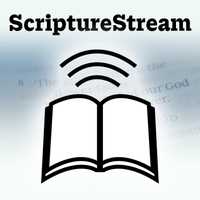- Exodus 3-4
- John 9:28 – Moses had an amazing legacy by the time of the New Testament.
- Acts 7:29-34 – Stephen summarizes Moses’ life.
- The reluctance of Moses (Exodus 3:11-4:17)
- Exodus 3:11 – “Who am I that I should go to Pharaoh?”
- Exodus 3:13 – They may say, “What is His name?”
- Exodus 4:1 – They may say, “The Lord has not appeared to you.”
- Exodus 4:10 – “I am slow of speech and slow of tongue.”
- Exodus 4:13 – “Send the message by whomever you will.”
- Do we have the same hurdles of reluctance when it comes to serving God today? What might be running through our heads:
- Why me? I’m a nobody.
- I don’t know what to say about God.
- How do I prove any of this? What if people start asking about the reliability of Bible manuscripts and evidence for God and stuff like that?
- I’m not good at this. I never think of the right way to say things.
- Somebody else could do this better.
- Consider the personal growth of Moses through the book of Exodus.
- Exodus 2:14-15; Acts 7:25 – first time leaving Egypt
- Exodus 14:13; Hebrews 11:27 – confidently leading Israel out
- “I AM has sent me to you” (Exodus 3:14)
- Hebrew הָיָה (hayah) means “to exist in the absolute sense.” Compare Hosea 1:9. See also Hebrews 13:8; Revelation 1:4, 9. Jesus made “I AM” statements in John 8:24, 25, 58; 13:19; 18:5.
- Exodus 10:2
- Exodus 20:2
- Leviticus 19:2
- God’s concern for His people: “Let my son go” (Exodus 4:23)
- Exodus 4:21-23 – God says Israel is His firstborn.
DW
March 19, 2017
For further study, see also:
Questions or comments? Join our Discord server for further study.
